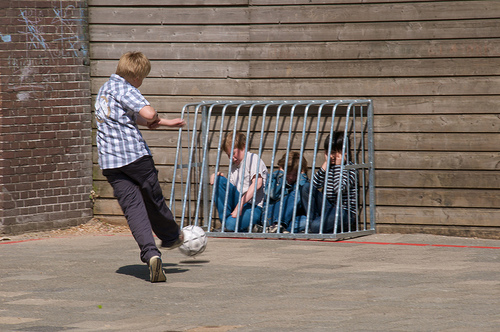
Four types of bullying
If you suspect your child is being bullied, knowing about the types of bullying will help you understand his or her situation and will provide you with useful tools to help your kid. The first type, physical bullying, involves hitting, pinching, pushing, spitting or damaging things. Verbal bullying relies on calling names, teasing and insulting. Social and emotional bullying includes spreading rumors about the affected child, encouragement of social exclusion, and mimicking and playing nasty jokes to humiliate. The fourth type, cyber bullying, involves harassment through social networks, websites, chat rooms and mobile phones.
- Important notification about information and brand names used in this slideshow!
- Photo courtesy of Thomas Ricker by Flickr : www.flickr.com/photos/trixer/3531445744/
- info.character.org/blog/bid/128143/19-Signs-Your-Child-Is-Being-Bullied-and-What-to-Do-about-It
- http://www.stopbullying.gov/at-risk/warning-signs
- http://healthyliving.msn.com/pregnancy-parenting/kids-health/14-signs-that-your-child-is-being-bullied-or-is-a-bully
- http://www.womansday.com/sex-relationships/family/signs-of-bullying
- http://www.education.com/magazine/article/Warning_Signs_that_Your_Child/
- http://www.erasebullying.ca/bullying/bullying-types.php
- http://www.ncab.org.au/fourkindsofbullying/
- http://www.stopbullying.gov/what-is-bullying/definition/
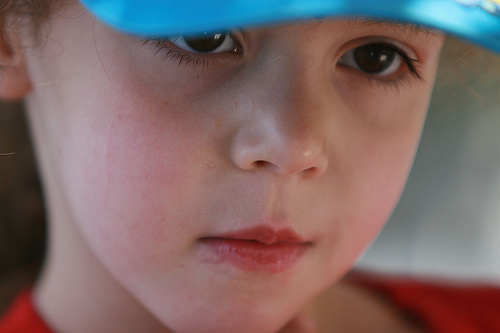
Physical bullying: unexplainable injuries
The first sign of physical bullying is when your child comes home with bruises, cuts and other injuries that have a suspicious origin; it can even involve sexual abuse. Attacks from other children can happen at school, but also on the way to school or when going back home. Physical bullying tends to be more common among boys, and the bully is usually an older or bigger child than the one bullied, but there are cases where it is a whole group of kids harassing one. The baseline of physical bullying is to give a message of superiority and have continuous control over someone.
- Important notification about information and brand names used in this slideshow!
- Photo courtesy of Dimitris Papazimouris by Flickr : www.flickr.com/photos/papazimouris/496764050/
- typesofbullying.org/
- http://www.stopbullying.gov/what-is-bullying/definition/
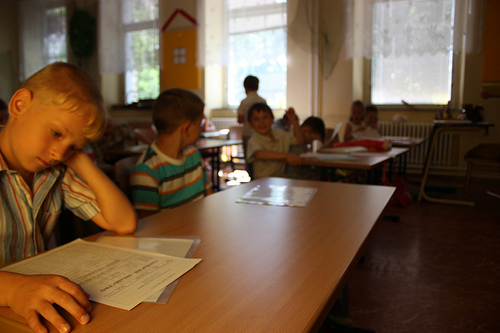
Changes in attitude, behavior and achievement at school
Unlike adults, children tend to show how they feel with their behavior. Even if they try to hide certain situations, you, as a parent, will automatically notice something different, not normal. When kids are bullied, their attitude and behavior changes drastically, to the extent of being angry, sad or lonely all the time and not exited about things that they used to like; their achievement at school is also affected, as well as their health. Bad grades and feeling sick all the time are alarm signs telling you there is something wrong. If not identified on time, bullying can lead your child into a depressive and suicidal state.
- Important notification about information and brand names used in this slideshow!
- Photo courtesy of Born.to.be.mild by Flickr : www.flickr.com/photos/born2bmild/5151887571/
- www.stopbullying.gov/at-risk/effects/
- http://www.medicalnewstoday.com/articles/256671.php
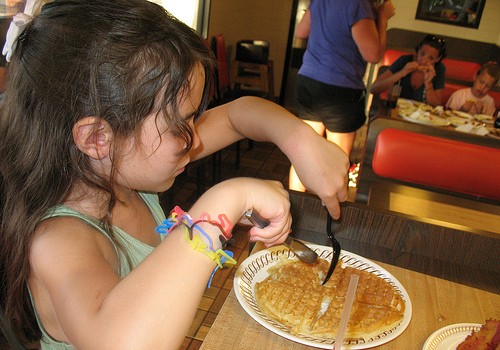
Coming home hungry
Another red flag that could easily be ignored by parents is when kids come home hungry. The bully could be taking your kid’s lunch money or food, leaving him or her without anything to eat during the day. But pay attention to this: loss of appetite can also be a sign of bullying. This situation would be more related to a state of depression due to the situation your kid is facing. In any case, it involves a change in the normal behavior of your child and should be considered as a warning sign. In order to help your child, you can talk to the school, and give notice about what you think might be happening, so teachers are alert and something is done to stop it.
- Important notification about information and brand names used in this slideshow!
- Photo courtesy of James Emery by Flickr : www.flickr.com/photos/emeryjl/5109011051/
- www.cignabehavioral.com/web/basicsite/bulletinBoard/overcomingBullying.jsp
- SANSONE, R. A. & SANSONE, L. A. 2008. Bully victims: psychological and somatic aftermaths. Psychiatry (Edgmont), 5, 62-4.
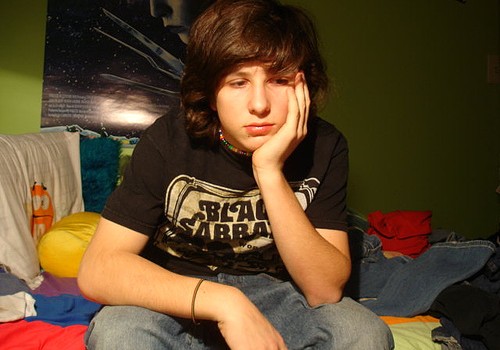
Losing or damaging things
Before yelling at your kid for having lost a jacket or ripped the backpack, try to think if this is the first time this happens, or if it has happened before. Usually, apart from hitting and injuring, bullies tend to damage or steal other children’s belongings to reinforce their sense of superiority among other children. This situation might be hard for parents to notice, because kids can easily hide the fact that some of their things were stolen or damaged. You will notice that your kid comes back home from school without the pencil case, or without the music player. Small details like this are very important, so be alert.
- Important notification about information and brand names used in this slideshow!
- Photo courtesy of Jason Meredith by Flickr : www.flickr.com/photos/merfam/71578640/
- www.behaviour.com.au/bullying.htm
- http://typesofbullying.org/
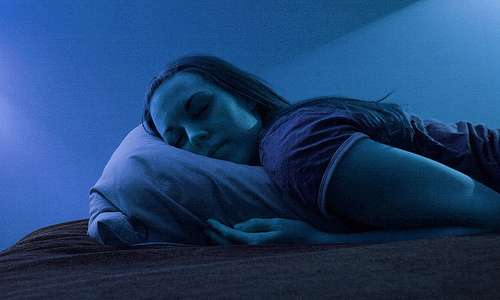
Problem with sleeping and eating
Several studies have detected that bullied kids and adolescents develop several health problems, including constant headaches, abdominal pain, bed-wetting, tiredness, problems with sleeping and eating disorders. These situations are addressed as psychosomatic symptoms, and are mainly caused by the exposure of children to high stress and anxiety levels. If your kid wakes up several times during the night, is feeling tired due to the lack of proper rest, and his or her appetite has decreased over the past few weeks, it is likely that he or she is going through a stressful situation that could be related to bullying.
- Important notification about information and brand names used in this slideshow!
- Photo courtesy of Jessica Quinn by Flickr : www.flickr.com/photos/jlee43/368755452/
- SANSONE, R. A. & SANSONE, L. A. 2008. Bully victims: psychological and somatic aftermaths. Psychiatry (Edgmont), 5, 62-4.
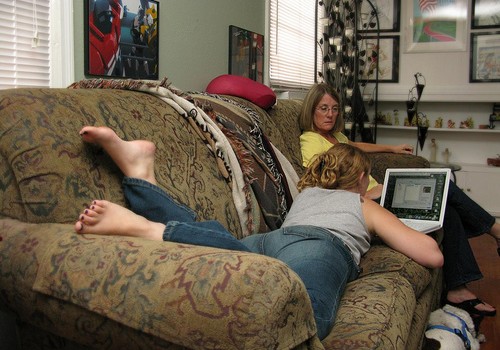
Becoming upset after going online
Cell phones, the Internet and social networks allow people to communicate 24 hours a day, 7 days a week. Children can use all of these technologies to harass, intimidate, tease, threaten and embarrass other children, outside from school, and with the possibility of reaching a very large group of kids. Cyberbullying can go from nasty messages to spreading mean rumors, uploading pictures and sending threats. If your kid seems upset, angry or sad after using the Internet, or avoids using the computer or cell phone, it might be because he or she is being bullied. Stay alert to all these signs, so you can take action.
- Important notification about information and brand names used in this slideshow!
- Photo courtesy of colorblindPICASO by Flickr : www.flickr.com/photos/colorblindpicaso/3118739499/
- kidshealth.org/teen/school_jobs/bullying/cyberbullying.html
- http://www.childline.org.uk/Explore/Bullying/Pages/online-bullying.aspx

Avoiding company or social activities
Nobody likes feeling uncomfortable, sad or unsafe, even when it involves doing something that you like. When bullied children are harassed outside school, during soccer practices, or when going to the park, for example, they tend to avoid these activities for fear of bullies. You can even notice that they avoid going to places or they drop out of activities when they know they can ran into someone in specific, or a certain group of kids. You will notice then that all of a sudden, your child gives up activities he or she used to enjoy, without any valid reason. Pay attention to what your kid says and does. This will help you identify all these signs.
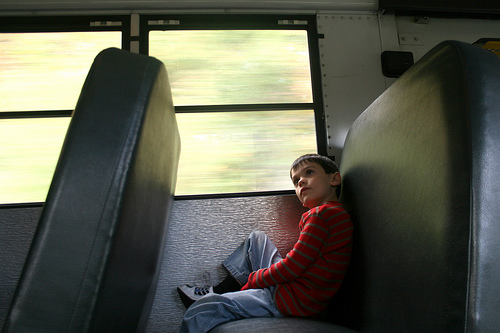
Why don't kids ask for help?
Who likes being called a “rat”? Yes, this is one of the main reasons children don’t report bullying to adults. In an attempt to avoid retaliation, or because they fell ashamed and afraid of the situation, or simply because they don’t recognize they are being bullied, kids tend not to say anything about what they are going through. Sometimes, if they have tried to denounce this situation to their parents or teachers, without any result, they may think that adults don’t care and that they deserve to be bullied. Feelings of rejection also stop bullied kids from talking to adults about it. They think that, by denouncing it, they will isolate themselves even more and loose support from their friends.
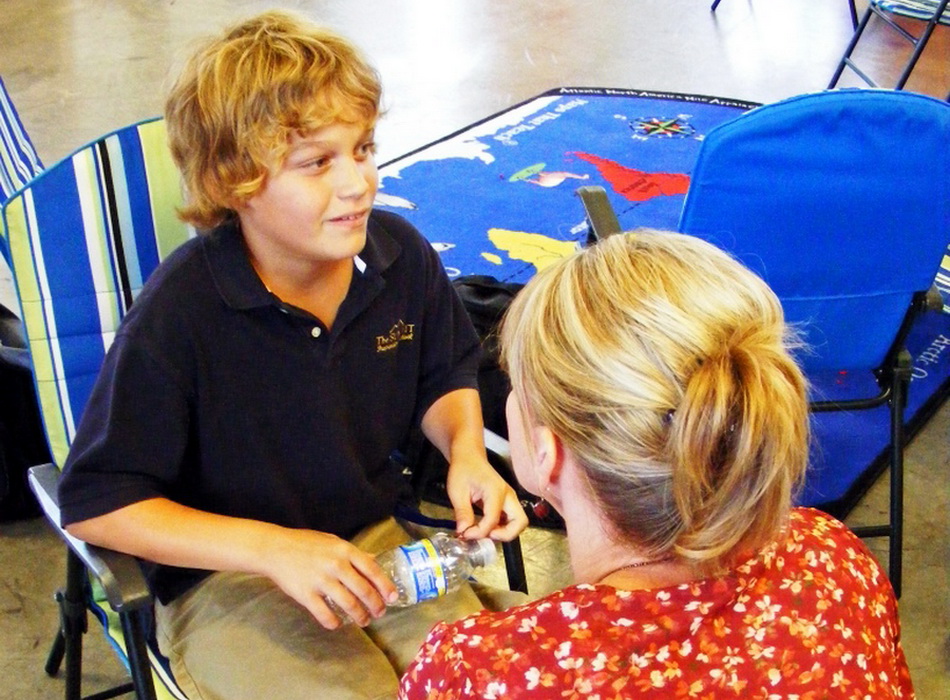
What to do if you suspect bullying but you aren’t sure
First of all, show your kid you care and try to talk about the problem you think is going on. Be patient and don’t put so much pressure on him or her. Try to help in restoring your kid’s self-confidence and give him or her advice on how to confront bullies, in a non-violent form. Approaching to your kid’s teachers can also help. Talk to the school about what might be happening with your kid and ask if they have noticed the same changes in behavior that you have identified at home. Along with teachers, try to come up with a plan to identify who is bullying your kid, but never confront other parents. Involve your child in different activities, so he or she can make new friends and regain confidence.
- Important notification about information and brand names used in this slideshow!
- Photo courtesy of Jose Kevo by Flickr : www.flickr.com/photos/jose_kevo/3927202657/
- www.ncpc.org/topics/bullying/what-parents-can-do
- http://www.stopbullying.gov/at-risk/warning-signs



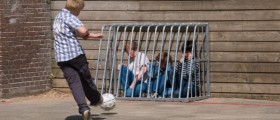
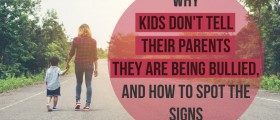






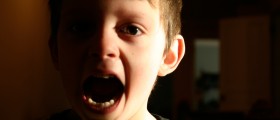

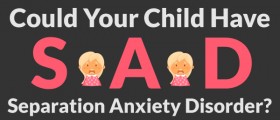

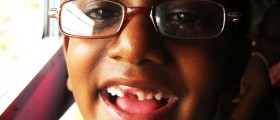







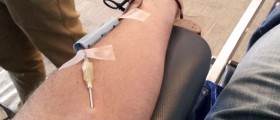



Your thoughts on this
Loading...